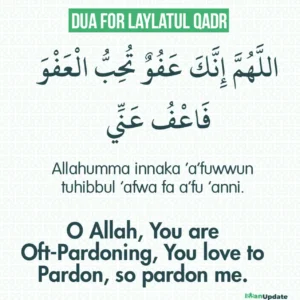Attahiyat Lillahi Meaning, Arabic Text and Transliteration

Attahiyat Lillahi (التَّحِيَّاتُ) is an Arabic term that literally means “greetings” or “salutations.” It is also commonly known as Tashahhud (التَّشَهُّدَ), which means “testimony” or “witness.”
This phrase is recited during the second or last rak’ah of prayer (salah), when one sits or kneels down. It includes greetings to Allah, sending peace and blessings upon Prophet Muhammad (PBUH), and all righteous slaves of Allah, followed by two testimonials.
This blog post will explore how to write and read Attahiyat in Arabic text, transliteration, and English meaning.
Attahiyat Lillahi in Arabic Text
The Arabic text of attahiya is:
التَّحِيَّاتُ لِلَّهِ، وَالصَّلَواتُ، وَالطَّيِّباتُ، السَّلاَمُ عَلَيْكَ أَيُّهَا النَّبِيُّ وَرَحْمَةُ اللَّهِ وَبَرَكَاتُهُ، السَّلاَمُ عَلَيْنَا وَعَلَى عِبَادِ اللَّهِ الصَّالِحِينَ. أَشْهَدُ أَنْ لاَ إِلَهَ إِلاَّ اللَّهُ وَأَشْهَدُ أَنَّ مُحَمَّداً عَبْدُهُ وَرَسولُهُ
Attahiyat Full Transliteration
The full transliteration of Attahiyat is as follows: Attahiyyaatu lillaahi wassalawaatu, wattayyibaatu, assalaamu ‘alayka ‘ayyuhan-Nabiyyu wa rahmatullaahi wa barakaatuhu, assalaamu ‘alaynaa wa ‘alaa ‘ibaadillaahis-saaliheen. ‘Ash-hadu ‘an laa ‘ilaaha ‘illallaahu wa ‘ash-hadu ‘anna Muhammadan ‘abduhu wa Rasooluhu.
Attahiyat Meaning In English
The meaning of Attahiyat in English is: All greetings of humility are for Allah, and all prayers and goodness. Peace be upon you, O Prophet, and the mercy of Allah and His blessings. Peace be upon us and upon the righteous slaves of Allah. I bear witness that there is none worthy of worship but Allah, and I bear witness that Muhammad is His slave and His Messenger.
Hadiths on Attahiyat Lillahi
Hadith #1
Narrated Ibn Mas`ud: Allah’s Messenger SAW taught me the Tashahhud as he taught me a Surah from the Qur’an, while my hand was between his hands.
(Tashahhud was) all the best compliments and the prayers and the good things are for Allah. Peace and Allah’s Mercy and Blessings be on you, O Prophet! Peace be on us and on the pious slaves of Allah, I testify that none has the right to be worshipped but Allah, and I also testify that Muhammad is Allah’s slave and His Apostle. (We used to recite this in the prayer) during the lifetime of the Prophet (SAW), but when he had died, we used to say, “Peace be upon the Prophet.”
Reference Sahih al-Bukhari 6265
Hadith #2
Abdullah Ibn Mas`ud said: While observing prayer behind the Messenger of Allah SAW we used to recite: Peace be upon Allah, peace be upon so and so.
One day the Messenger of Allah SAW said to us: Verily Allah is Himself Peace. When any one of you sits during the prayer, he should say:
All services rendered by words, by acts of worship, and all good things are due to Allah. Peace be upon you, O Prophet, and Allah’s mercy and blessings. Peace be upon us and upon Allah’s upright servants, for when he says this it reaches every upright servant in the heavens and the earth. (And say further): I testify that there is no god but Allah and I testify that Muhammad is His servant and Messenger. Then he may choose any supplication which pleases him and offer it.
Reference Sahih Muslim 402
Hadith #3
Abdullah bin Zubair narrated on the authority of his father that when the Messenger of Allah SAW sat for supplication, i. e. tashahhud (blessing and supplication), he placed his right hand on his right thigh and his left hand on his left thigh, and pointed with his forefinger, and placed his thumb on his (milddle) finger, and covered his knee with the palm of his left hand.
Sahih Muslim 579
Hadith #4
Narrated Abdullah bin Malik bin Buhaina: Once Allah’s Messenger led us in the Zuhr prayer and got up (after the prostrations of the second rak`a) although he should have sat (for the Tashahhud). So at the end of the prayer, he prostrated twice while sitting (prostrations of Sahu).
Sahih al-Bukhari 830

The Tashahhud, also known as at-Tahiyyat, is a crucial aspect of the Muslim prayer, where one kneels or sits facing the qibla, glorifying Allah, greeting the Prophet and righteous individuals, and affirming the two testimonials of faith.
Following the Tashahhud, Muslims invoke blessings and peace upon the Prophet through the Salatul Ibrahimiyyah or Darood Ibrahim.
While the Tashahhud is not obligatory in every rak’ah, it is a fundamental pillar in the final rak’ah and mandatory in the first sitting of prayers comprising three or four rak’ahs. Additionally, various supplications (du’a) can be recited after the Tashahhud, before concluding the prayer.
Is Attahiyat Obligatory?
The final Tashahhud (Attahiyat) is a fundamental element of the prayer, while the initial Tashahhud is an obligatory component.
It is essential to adhere to the prescribed wording of the Adhkar (remembrances) in prayer and other aspects, and to avoid altering them as much as possible, maintaining their authenticity and integrity.






